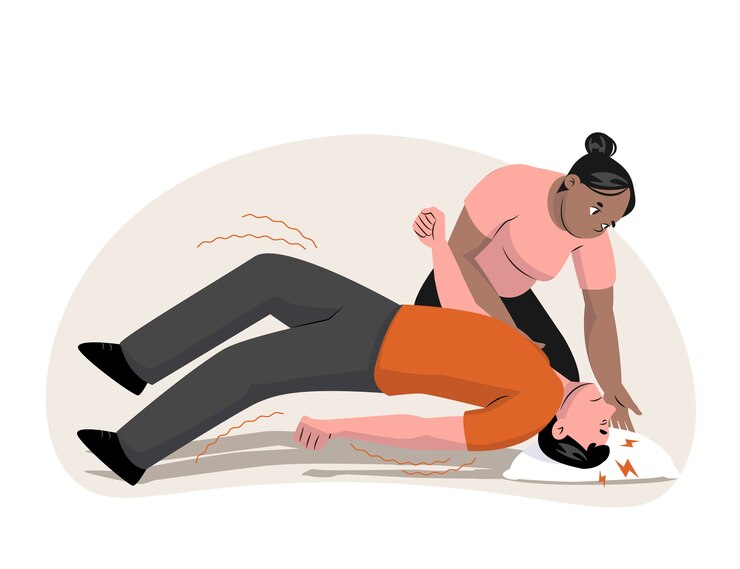Premature Ejaculation and Mental Health: Breaking the Silence

Understanding Premature Ejaculation: A Closer Look at the Condition
Premature ejaculation is a common sexual dysfunction affecting a significant number of individuals. It is characterized by the inability to control or delay ejaculation, often leading to distress and dissatisfaction in sexual relationships. While there is no universally agreed-upon definition of “premature,” it is generally understood as ejaculating within one minute of sexual activity.
This condition can have both physical and psychological causes. Physically, premature ejaculation may be influenced by factors such as heightened penile sensitivity, hormonal imbalances, or abnormal levels of neurotransmitters in the brain. Psychological factors, on the other hand, can include anxiety, stress, depression, relationship problems, or past traumatic experiences. It’s worth noting that premature ejaculation is not a reflection of an individual’s masculinity or sexual prowess – it is a medical condition that can be effectively addressed with the right treatment approaches.
The Physical and Emotional Impact of Premature Ejaculation
Premature ejaculation can have both physical and emotional impacts on individuals affected by the condition. Physically, it can lead to feelings of frustration and embarrassment, as well as a decrease in sexual satisfaction and intimacy. A study conducted by Serefoglu et al. (2011) found that men with premature ejaculation reported lower overall sexual satisfaction and greater levels of distress compared to men without the condition.

In addition to the physical effects, premature ejaculation can also take a toll on individuals’ emotional well-being. It can cause feelings of inadequacy, anxiety, and low self-esteem, potentially leading to a decrease in overall mental health. A survey conducted by Symonds et al. (2007) revealed that men with premature ejaculation had higher levels of distress and dissatisfaction with their sexual functioning, which subsequently impacted their overall quality of life.
The physical and emotional impacts of premature ejaculation highlight the importance of understanding and addressing this condition. By seeking professional help and exploring treatment options, individuals can improve their sexual satisfaction, bolster their self-esteem, and enhance their overall well-being. It is crucial to recognize that premature ejaculation is a common concern and that there are effective strategies available to manage and overcome it.
Debunking Myths Surrounding Premature Ejaculation
When it comes to premature ejaculation, there are numerous myths and misconceptions that can create confusion and hinder the understanding of this common condition. One prevalent myth is that premature ejaculation is solely a problem experienced by younger men. However, research has shown that premature ejaculation can affect men of all ages, including those in their 40s, 50s, and beyond. Another myth is that premature ejaculation is always caused by psychological factors. While psychological factors can contribute to premature ejaculation, there are also physical factors such as hormonal imbalances, nerve damage, or inflammation that can play a role.
Furthermore, there is a misconception that premature ejaculation is solely a problem for men and doesn’t impact their partners. However, studies have shown that the emotional and psychological distress caused by premature ejaculation can also have a significant impact on the partners’ well-being and satisfaction within the relationship. It is crucial to debunk these myths surrounding premature ejaculation to ensure that individuals and couples have accurate information and can seek appropriate help and support. By understanding the facts about premature ejaculation, we can promote open and informed discussions, reduce stigma, and empower individuals to take charge of their sexual health.
Recognizing the Signs and Symptoms of Premature Ejaculation
Premature ejaculation can be distressing for many individuals, but understanding the signs and symptoms can help in seeking appropriate treatment. One of the key indicators of premature ejaculation is consistently ejaculating before or shortly after penetration, causing dissatisfaction for both the individual and their partner. It is important to note that occasional instances of early ejaculation are common, but if it becomes a persistent pattern, it may be considered premature ejaculation.
Another sign to look out for is the inability to delay ejaculation during sexual activity, regardless of the amount of stimulation or the level of desire. This can lead to feelings of frustration, embarrassment, and a negative impact on one’s self-esteem. It is also worth mentioning that premature ejaculation is not solely a physical issue but can often be influenced by psychological factors such as stress, anxiety, or relationship problems. Understanding these signs and symptoms can act as a starting point for individuals seeking help and support in managing and treating premature ejaculation.
The Connection Between Premature Ejaculation and Mental Health
Premature ejaculation is not only a physical condition but also has a significant impact on mental health. The connection between premature ejaculation and mental health is complex and can vary from person to person, but it is important to understand the potential psychological factors that can contribute to this condition.
Research suggests that anxiety and stress are common psychological factors associated with premature ejaculation. The fear of not being able to perform sexually can create a cycle of heightened anxiety, leading to increased levels of stress and worsening the condition. This can create a significant burden on an individual’s mental well-being, causing feelings of frustration, embarrassment, and even depression.
Additionally, the impact of premature ejaculation on self-esteem and confidence should not be overlooked. Men who experience this condition often report feelings of inadequacy and a negative impact on their self-image. This can further exacerbate mental health issues and lead to a decreased desire for intimacy, strained relationships, and even social withdrawal.
It is worth noting that the relationship between premature ejaculation and mental health is bidirectional. While premature ejaculation can have a detrimental effect on mental well-being, existing mental health conditions, such as anxiety and depression, can also contribute to the development or worsening of this condition.
Understanding the connection between premature ejaculation and mental health is crucial to providing comprehensive care and support for those affected. By addressing both the physical and psychological aspects of this condition, individuals can find relief and improve their overall quality of life. In the next sections, we will explore the psychological factors contributing to premature ejaculation and the treatment options available to manage this condition effectively.
Exploring the Psychological Factors Contributing to Premature Ejaculation
Premature ejaculation (PE) is a common sexual dysfunction that affects many men worldwide. While physical factors such as hypersensitivity of the penis or hormonal imbalances can contribute to PE, it is crucial to explore the psychological factors that may play a role as well. Psychological factors are often intertwined with physical aspects, and understanding their influence can help in the management and treatment of PE.
One psychological factor that may contribute to PE is performance anxiety. The fear of not being able to satisfy a partner or the pressure to perform can trigger stress and anxiety, leading to premature ejaculation. Additionally, past experiences of sexual trauma or negative sexual encounters can impact an individual’s sexual performance and contribute to PE.
Another psychological factor is relationship difficulties. Conflict, lack of communication, or unresolved issues within a relationship can create stress and emotional strain, leading to sexual problems like PE. The impact of relationship problems on sexual performance should not be underestimated, as healthy and supportive relationships play a crucial role in sexual satisfaction.
It is important to recognize that psychological factors are highly subjective and can vary from person to person. Understanding and addressing these factors through therapies such as cognitive-behavioral therapy (CBT) or sex therapy can be effective in managing and alleviating premature ejaculation symptoms. Incorporating techniques like relaxation exercises, communication skills training, and Sensate Focus can also help individuals improve their sexual experiences and foster a healthy sexual relationship. By considering both the physical and psychological aspects of premature ejaculation, individuals can work towards overcoming this condition and enhancing their overall well-being.
How Premature Ejaculation Can Affect Relationships and Intimacy

Premature ejaculation can have a significant impact on relationships and intimacy. It is not uncommon for couples dealing with this condition to experience a sense of frustration, disappointment, and even resentment. The inability to have a fulfilling sexual experience can lead to a breakdown in communication and emotional connection between partners.
In addition, the affected individual may also experience a decrease in their self-esteem and self-confidence. The fear of not being able to satisfy their partner can create performance anxiety and stress, further exacerbating the problem. This can create a negative cycle where the individual becomes more anxious about their sexual performance, leading to even more premature ejaculation episodes.
Furthermore, the lack of sexual satisfaction can create a sense of dissatisfaction and dissatisfaction in the relationship as a whole. Intimacy is an important aspect of any relationship, and when one partner is consistently unable to meet the other’s sexual needs, it can lead to feelings of neglect and dissatisfaction. This can strain the emotional bond between partners and potentially lead to feelings of resentment and even infidelity in some cases.
It is important for couples dealing with premature ejaculation to address the issue openly and honestly. Seeking professional help, such as therapy or counseling, can be beneficial in facilitating communication and understanding between partners. By working together as a team and exploring various treatment options, couples can find ways to overcome the challenges posed by premature ejaculation and build a healthier and more satisfying intimate relationship.
Seeking Professional Help: Treatment Options for Premature Ejaculation
Premature ejaculation is a common sexual disorder that can have a significant impact on a person’s quality of life. Fortunately, there are various treatment options available for individuals seeking professional help to manage this condition.

One of the treatment options for premature ejaculation is medication. Selective serotonin reuptake inhibitors (SSRIs) have been found to be effective in delaying ejaculation. These medications work by increasing the levels of serotonin in the brain, which helps to regulate the timing of ejaculation. It is important to note that these medications may have side effects and should be taken under the guidance of a healthcare professional.
Another treatment option for premature ejaculation is topical creams or sprays. These products contain numbing agents, such as lidocaine or prilocaine, which help to desensitize the penis and prolong ejaculation. It is essential to follow the instructions provided by the manufacturer and consult with a healthcare professional before using any topical treatments.
In addition to medication and topical treatments, therapy and counseling can also play a crucial role in managing premature ejaculation. It is important to address any underlying psychological factors that may contribute to the condition. Therapists can provide guidance and support, helping individuals develop coping strategies and techniques to prolong ejaculation.
Individuals experiencing premature ejaculation should not hesitate to seek professional help. With the right treatment approach, it is possible to manage this condition effectively and improve one’s overall sexual well-being. Remember to consult with a healthcare professional who can tailor the treatment plan to your specific needs and provide ongoing support throughout the process.
The Role of Counseling and Therapy in Managing Premature Ejaculation
Counseling and therapy can play a crucial role in managing premature ejaculation, offering individuals the opportunity to address the psychological factors that may contribute to the condition. By exploring the underlying emotional and mental health challenges, counseling sessions can provide a safe and supportive environment for individuals to discuss their concerns openly. A study conducted by Jannini et al. (2011) found that cognitive-behavioral therapy (CBT) was effective in improving intravaginal ejaculation latency time (IELT) and overall sexual satisfaction among men with premature ejaculation. In addition to CBT, other therapeutic approaches such as mindfulness-based therapy, couple’s therapy, and sex therapy have also shown promise in helping individuals manage premature ejaculation and improve their sexual well-being.

Most importantly, counseling and therapy provide a platform for educating individuals and their partners about premature ejaculation. This can help alleviate any misconceptions or misunderstandings surrounding the condition, reducing feelings of shame or embarrassment. By addressing the emotional impact that premature ejaculation can have on self-esteem and relationships, therapy also aims to improve communication, foster intimacy, and enhance overall sexual satisfaction. As König et al. (2016) suggest, therapy can help individuals gain a better understanding of the psychosocial factors influencing premature ejaculation, leading to more effective coping strategies and improved mental health outcomes.
Lifestyle Changes and Techniques for Coping with Premature Ejaculation
Lifestyle changes and techniques can play a crucial role in managing premature ejaculation and improving sexual satisfaction. While there is no one-size-fits-all solution, making certain adjustments to your daily routine and incorporating specific coping techniques may help alleviate the condition’s impact on your sexual experiences.
One lifestyle change that may be beneficial is incorporating regular exercise into your routine. Engaging in physical activity not only helps reduce stress and anxiety, but it can also improve overall sexual function. Studies have shown that exercise can increase blood flow to the genital area, enhancing erectile function and delaying ejaculation. Incorporating activities such as jogging, swimming, or cycling into your weekly schedule can contribute to your overall physical and sexual well-being.
In addition to exercise, relaxation techniques can be effective in managing premature ejaculation. Techniques such as deep breathing, yoga, or meditation can help reduce anxiety and tension, allowing you to better control your arousal levels. By practicing these techniques regularly, you may find that you are better able to prolong sexual activity and delay ejaculation. It is important to note that mastering these techniques may take time and patience, but the long-term benefits can be significant.
Communication Strategies for Couples Dealing with Premature Ejaculation
Premature ejaculation can have a significant impact on a couple’s relationship and intimacy. It is important for partners to openly communicate and support each other in managing this condition. By discussing the issue in a sensitive and understanding manner, couples can work together to find effective solutions.
One effective communication strategy is to create a safe and non-judgmental space where both partners can openly express their feelings and concerns. This includes providing emotional support and reassurance to the partner experiencing premature ejaculation and being empathetic towards their experiences. It is crucial to avoid blaming or shaming the partner, as this can further contribute to feelings of anxiety and stress.
Additionally, couples can benefit from educating themselves about the causes and treatment options for premature ejaculation. By understanding the underlying factors contributing to the condition, partners can better support each other in seeking appropriate medical help and exploring potential treatment approaches. Sharing information and discussing potential solutions together can foster a sense of teamwork and shared responsibility in managing the condition.
Remember, open and honest communication is key in navigating the challenges associated with premature ejaculation. By working together, couples can strengthen their bond and find effective ways to manage this condition.
Addressing the Stigma and Shame Associated with Premature Ejaculation
Premature ejaculation is a common sexual issue that affects many individuals, yet it is often accompanied by feelings of stigma and shame. The societal pressure to conform to unrealistic expectations of sexual performance can intensify these negative emotions, causing individuals to suffer in silence and hesitate seeking help. It is essential to address the stigma and shame associated with premature ejaculation in order to create a supportive and understanding environment for those affected by this condition.
One way to combat the stigma is through education and awareness. By providing accurate and accessible information about premature ejaculation, we can dispel misconceptions and myths that contribute to the shame surrounding this condition. Understanding that premature ejaculation is a medical condition and not a personal failing is crucial in reducing the stigma. By sharing facts and statistics, we can highlight that premature ejaculation affects individuals of all ages, backgrounds, and sexual orientations, further normalizing the experience and breaking down barriers of shame. Through open dialogue and public discussions, we can encourage empathy, compassion, and acceptance, paving the way for individuals to seek the support they need without fear or embarrassment.
Support Networks and Online Communities for Individuals with Premature Ejaculation
Support networks and online communities can play a crucial role in providing individuals with premature ejaculation the support and understanding they need. Connecting with others who are going through similar experiences can help ease feelings of isolation and provide a safe space to discuss concerns and seek advice. These networks and communities often offer forums, chat rooms, and moderated discussion boards where individuals can share their stories, ask questions, and receive support from a community that understands their challenges.
In addition to emotional support, online communities for premature ejaculation can also be a valuable resource for information and education. Many of these platforms provide a wealth of articles, blogs, and educational materials that discuss the condition in detail. These resources often cover topics such as the causes of premature ejaculation, treatment options, lifestyle changes, and coping mechanisms. Accessing evidence-based information can empower individuals to make informed decisions about their own health and well-being.
Promoting Mental Well-being in the Context of Premature Ejaculation
Promoting mental well-being is crucial for individuals dealing with premature ejaculation (PE). The emotional impact of PE can be significant and may lead to feelings of frustration, embarrassment, and even anxiety or depression. By addressing the mental health aspects of this condition, individuals can take proactive steps towards improving their overall well-being.
One effective way to promote mental well-being in the context of PE is through education and understanding. By learning more about the condition, individuals can demystify it and gain a sense of control. This can be achieved by seeking information from credible sources, attending educational workshops or support groups, or consulting with healthcare professionals. Understanding the underlying causes, treatment options, and coping mechanisms can empower individuals and reduce feelings of shame or inadequacy. Additionally, education can also help partners to provide support and empathy, creating a more nurturing and understanding environment.
Moving Forward: Empowering Individuals to Overcome Premature Ejaculation and Improve Mental Health
Premature ejaculation is a common sexual concern that can significantly impact an individual’s mental health and overall well-being. However, it is important to remember that there are various strategies and treatment options available to help individuals overcome this condition and improve their mental health.
One of the first steps towards empowering individuals with premature ejaculation is seeking professional help. Consulting with a healthcare provider, such as a urologist or a sex therapist, can provide valuable guidance and support. These professionals can conduct a thorough assessment, discuss treatment options, and provide personalized strategies to address the specific needs of each individual.
Treatment for premature ejaculation often includes a combination of psychological counseling, medication, and lifestyle changes. Counseling and therapy can help individuals understand the underlying causes of their condition, develop coping mechanisms, and improve overall sexual satisfaction. Medications such as selective serotonin reuptake inhibitors (SSRIs) and topical creams may also be recommended to delay ejaculation. Additionally, adopting healthy lifestyle habits, such as practicing relaxation techniques, maintaining a balanced diet, and engaging in regular exercise, can contribute to the overall improvement of both physical and mental health. Empowering individuals to take control of their sexual health and well-being is crucial in the journey towards overcoming premature ejaculation and achieving a satisfying and fulfilling sex life.
What is premature ejaculation?
Premature ejaculation is a condition where a man ejaculates sooner during sexual intercourse than he or his partner desires.
What are the physical effects of premature ejaculation?
Premature ejaculation can lead to feelings of frustration, embarrassment, and anxiety. It can also strain relationships and affect one’s self-esteem.
Can psychological factors contribute to premature ejaculation?
Yes, psychological factors like stress, performance anxiety, and relationship issues can contribute to premature ejaculation.
How does premature ejaculation affect relationships and intimacy?
Premature ejaculation can cause strain in relationships and lead to a lack of sexual satisfaction and intimacy. It may also result in decreased confidence and communication issues.
Are there treatment options available for premature ejaculation?
Yes, there are various treatment options available for premature ejaculation, including medications, therapy, and lifestyle changes.
How can counseling and therapy help in managing premature ejaculation?
Counseling and therapy can help individuals address underlying psychological factors contributing to premature ejaculation and develop coping strategies to improve sexual experiences.
What lifestyle changes can be effective in coping with premature ejaculation?
Lifestyle changes such as practicing relaxation techniques, regular exercise, and open communication with your partner can be effective in coping with premature ejaculation.
How can couples communicate effectively when dealing with premature ejaculation?
Couples can communicate openly and non-judgmentally about their sexual needs, desires, and concerns. This can help create a supportive and understanding environment.
How can individuals overcome the stigma and shame associated with premature ejaculation?
Overcoming the stigma and shame associated with premature ejaculation requires education, self-acceptance, and open conversations with supportive individuals or professionals.
Are there online communities or support networks available for individuals with premature ejaculation?
Yes, there are online communities and support networks where individuals with premature ejaculation can connect, share experiences, and seek advice or encouragement.







